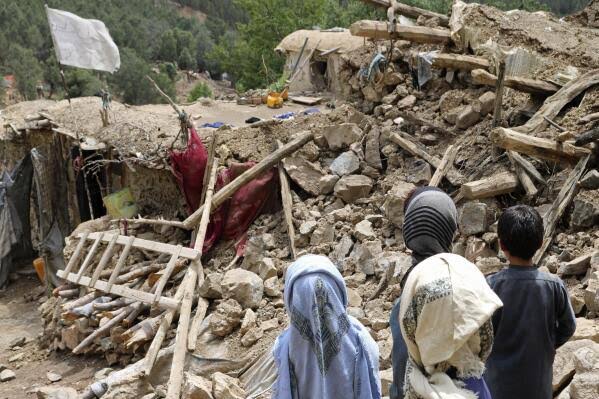By Eniola Amadu
Afghanistan has been struck by one of its deadliest earthquakes in recent years, leaving more than 800 people dead and at least 2,800 others injured, authorities confirmed.
The powerful quake, measuring magnitude 6, struck shortly after midnight at a depth of 10 kilometres (six miles), devastating villages in the eastern provinces of Kunar and Nangarhar.
READ ALSO: At least 250 dead after earthquake strikes eastern Afghanistan
Officials reported 812 fatalities, with Kunar suffering the heaviest toll of at least 610 deaths, while 12 were confirmed in Nangarhar.
Three entire villages were razed, while many others sustained severe damage as mudbrick homes crumbled under the tremors. Rescue operations have been hampered in remote mountainous areas near the Pakistani border, where communications remain cut off.
Helicopters have been deployed to airlift victims to hospitals, with Afghan military teams conducting at least 40 flights to transport more than 420 casualties, both dead and injured.
Residents were also seen working alongside security forces and medics, pulling survivors from the rubble and rushing them into waiting ambulances.
Sharafat Zaman, spokesperson for Afghanistan’s health ministry, appealed for urgent international aid, warning of the scale of the devastation.
“We need it because here lots of people lost their lives and houses,” he said.
Health ministry officials added that all available teams had been mobilised to provide food, shelter, medical treatment, and security in the affected regions.
The disaster comes as Afghanistan’s Taliban-led administration grapples with severe humanitarian crises. Since the Taliban takeover in 2021, international aid has plummeted from $3.8 billion in 2022 to just $767 million this year, leaving the country acutely vulnerable to natural disasters such as earthquakes and floods.
This tragedy marks the third major deadly quake since the Taliban assumed power, further exposing the fragility of Afghanistan’s infrastructure. Heavy rainfall in recent days has worsened the aftermath, triggering landslides and blocking key roads, further hindering rescue efforts.
The UN Office for the Coordination of Humanitarian Affairs (UNOCHA) has also warned that polluted water sources and decomposing animal carcasses could pose serious health risks in the coming days.
READ ALSO: Farage unveils radical plan for mass deportations of immigrant, ECHR exit
India has already delivered 1,000 family tents and 15 tonnes of food supplies, while China has pledged emergency relief.
The UN Secretary-General confirmed that international humanitarian agencies are mobilising to support affected communities.



